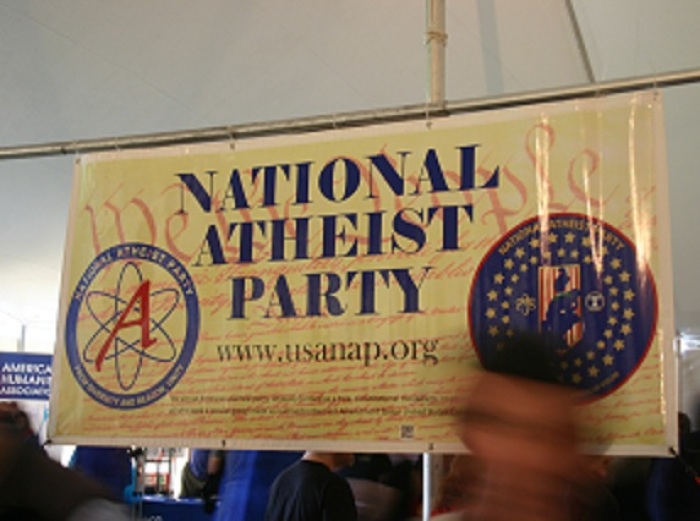Atheists most politically active group in US, survey finds

Americans who identify as atheist are the most likely group to be involved in political activism, according to a report by a political science professor.
Ryan P. Burge of Eastern Illinois University drew from data from the Cooperative Congressional Election Survey of 2018 for his report published by Religion in Public.
When asked about political activity within the past 12 months, 24.9% of atheist respondents said they had attended a march or protest, the largest of any of the surveyed religious groups.
Additionally, 41.9% of atheist respondents said they had contacted a public official, again the largest percentage of surveyed religious groups, and 37% had donated money to a candidate, tying with Jews for first place.
Also, 24.1% of atheist respondents reported putting up a political sign, placing them in a close second to 24.7% of Buddhist respondents.
White evangelical respondents showed less participation by comparison, with 4.4% of respondents saying they had attended a march or protest and 28.5% saying they had contacted a public official.
“It’s become almost a trope at this point among people who study and write about American religion and politics — evangelicals punch way above their weight. Their voter turnout has stayed relatively steady despite their drop in population share,” wrote Burge.
“But I was working through some data today and noticed something that I don’t think that I’ve seen reported on much — atheists are incredibly politically active — more so than any other religious group.”
Burge went on to speculate that this increased political involvement might have helped contribute to Democratic political successes in the 2018 midterm elections.
“This could be one of the reasons that the Blue Wave happened in 2018 — a very agitated base of atheists who got politically involved,” he continued.
“White evangelicals make up 15.6% of the population, atheists and agnostics combined are 13.2%. With that level of political activity, it’s fair to say that these nones might be a bigger political force in the next presidential election than we give them credit for — they just have to stay angry and stay engaged.”
As religious unaffiliated Americans in general appear to increase in number, the Democratic Party has made more overtures to those who identify as atheist.
Last August, the Democratic National Committee passed a resolution in support of religious unaffiliated Americans, declaring that atheists and agnostics “overwhelmingly share the Democratic Party’s values.”
"I am proud to see the Democratic Party take that to heart by bringing secular Americans into the fold,” said Sarah Levin, director of governmental affairs for the Secular Coalition of America, which championed the resolution.
“America was founded as a secular government charged with representing and protecting the freedoms of people of all faiths and none.”
In the current session of Congress, 88.2% of members identify as Christian, while 6.4% identify as Jewish, and 3.6% identified either as unaffiliated or declined to answer, according to Pew Research Center.



























